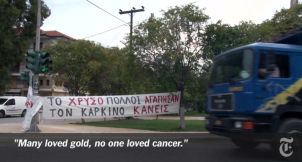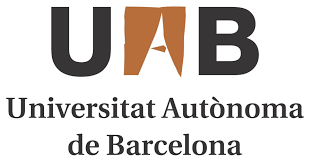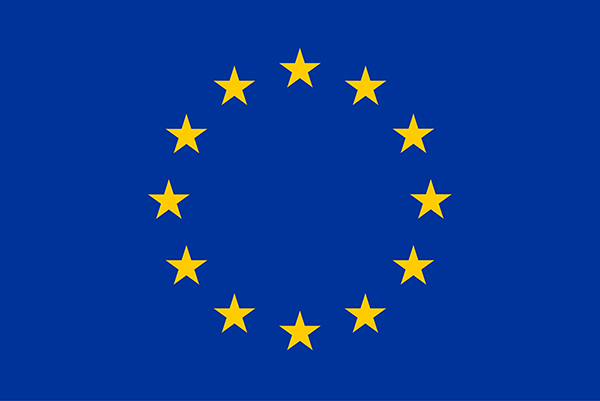
Unprovoked chemical attacks on civilians, 3AM raids on houses and violent police attacks on peacefully demonstrating women. You’re excused for thinking this is Syria or even Peru or Turkey, but this is about a hidden war in Europe in the North-East of Greece. Hellas Gold, a subsidiary of the Canadian mining company El Dorado Corp, backed by the state security forces, has turned the area around Halkidiki into a police state. The region has recently seen indiscriminate arrests of residents (including school children), criminalization of a peaceful social struggle and a baby hospitalized following a home search by police using teargas. Last October, we already reported about the police chasing demonstrators for a full seven kilometers and we have already referred to a damning report from Amnesty International. Our blog on how mining corporations are fuelling civil conflict in the country is more than a year old – but as relevant as ever. Our sources on the ground continue their struggle for environmental justice and feed us updates on the unfolding events. For security reasons, the slightly edited blog post below remains anonymous. That says a lot about the current climate in this EU country: you’re no longer safe to speak the truth about what is not just an assault on the environment, but on democracy itself in the very country that invented it.
Police repress, people unite
In the night of 16 to 17 February 2013, an arson attack took place on the worksite of mining company Hellas Gold in the Skouries forest in North-Eastern Halkidiki. A group of masked persons set equipment and vehicles on fire. Since then, the region of N.E. Halkidiki is turning into a police state. On March 7, more than 200 fully armed riot policemen invaded Ierissos, making use of large quantities of chemicals in the settlement. The police did not hesitate to use teargas in the local High School, provoking panic attacks and breathing problems to students. One student was officially reported injured by a tear gas cartridge, while tens of others received first-aid. The excuse for the operation was that the authorities wanted to search the houses of suspects. Residents neither interfered with the police search nor the attempts of the judicial authorities to find the persons responsible for the arson. However, later in the afternoon, when the house searches had been completed, the police attacked once again, with excessive use of chemicals. This new wave of violence caused serious problems for an 11 month old baby who was hospitalized for several days with symptoms of poisoning. The Ministries of Police and Education denied the use of chemicals both in the village and in the courtyard of the school, despite official reports, testimonials and audio-visual proof. The local people responded to the police violence with a massive demonstration of more than 15.000 people in Thessaloniki.
On Wednesday, April 10, at 3:00 a.m. the special riot police forces raided two houses, breaking down the doors, and arrested two citizens in front of their underage terrified children. They prevented communication with relatives under threat of arms and did not allow those arrested to get dressed. Those arrested were detained at the General Police Headquarters of Thessaloniki until Sunday, April 14. The two persons arrested are suspects for the arson attack at the company’s construction site (where the open pit is planned to be). They were questioned and the investigator and prosecutor decided that they should be held in jail until the trial (in Greece that can be up to 18 months). The case has been characterized as a “terror attack” and is being investigated under a new anti-terrorism law, under which anyone can be charged just for wearing a gas mask. They are accused of conspiracy, use of firearms, possession of weapons, attempted murder, arson and terrorism. They both have alibis and their lawyers have denounced a host of irregularities and procedural arbitrariness, calling the procedure a rape of democracy. The two men are still in jail.
Despite the escalating government violence and the organized effort to criminalize the social struggle, residents declare that they are united, strong and determined to continue the struggle. On Mother’s Day local women were protesting in the mountain, close to the construction site of Hellas Gold. The protest was treated with undue police violence. Two women were injured and three were arrested. In the trial that followed the arrests, the Greek police testified that the policemen were threatened and endangered by a handful of women. The struggling people of Halkidiki responded with a sensational music concert, where thousands of people declared that solidarity is the weapon of the people.
Is the Greek state using Halkidiki as a test case?
Meanwhile “Hellas Gold” continues to break the law and the Greek State continues to cover up these law violations. There is contamination by heavy metals in streams of Olympiada, violation of building regulations, illegal logging and illegal blocking of public roads. Halkidiki may be seen as an operational exercise, where the state refines the policy of enforcing the predatory exploitation of natural resources and the selling off of public property. It is an experimental laboratory, where the government and the social movements of resistance collide and measure their power. The state is crossing the limits of society’s tolerance at all levels: through financial scandals, environmental destruction, corruption, arbitrariness, lawlessness, repression, propaganda, bullying, selling off public wealth and circumventing political, constitutional and human rights. Where will it stop?
In Greece, the issue of environmental protection is deeply political. Our attitude as a society towards the natural environment incorporates our philosophy on life. How much are we willing to sacrifice in order to pay back financial debt and enjoy the “goods” of consumerism? How artificial are ultimatums such as “either economic prosperity or environmental protection”? How much democracy is left in Greece? For an increasing part of the Greek population, such questions now matter more than ever.
For more in-depth questions on the extractivist direction that Greece is taking, please also read the excellent article by Professor Giorgos Kallis from ICTA-UAB:
http://greeklish.info/en/greece/environment/33
More info:
The arson attack on the Skouries mining site and its aftermath
Demonstration in Thessaloniki (09.03.3012)
Skouries: an ancient forest is Greece’s latest battle-ground
Thousands of workers protest disputed gold mine in Athens
Skouries: from intimidation to terror
Greeks Fight Canadian Gold-Diggers
Ecology vs Economy: Dirty gold dig split Greeks in Chalkidiki
Greeks rally against Canadian gold mine project
NEWS: 15,000 march on Canadian consulate in Greece in opposition to gold mines
Reuter Special Report: Greece’s triangle of power
Why Are Greeks Protesting Canadian Mining Operations? Human Rights Abuses May be to Blame
NYT: Greece Sees Gold Boom, but at a Price
As Greece sinks, gold mine seen as savior to some — curse to others
Womens’ open letter – call for support and solidarity





Pingback: A Canadian company, the police in Greece and democracy in the country that invented it | Hellenic Mining Watch
Pingback: A Canadian company, the police in Greece and democracy in the country that invented it | endtropia
Pingback: Eldorado Gold delays troubled gold mining project in Greece | Hellenic Mining Watch
This is a very good tip particularly to those fresh to the blogosphere.
Brief but very precise info… Appreciate your sharing
this one. A must read post!
Pingback: Eldorado Gold delays troubled gold mining project in Greece | Greek Independent News
Pingback: A Canadian company, the police in Greece and democracy in the country that invented it
Pingback: Eldorado Gold delays troubled gold mining project in Greece | greek_independent_news